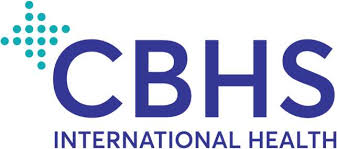 Allianz Care Australia
Allianz Care Australia
 CBHS International Health
CBHS International Health
Just a few decades ago cosmetic surgery was relatively uncommon, but it has had a big increase in Australia in the past 10 years. In fact, according to the Australian Commission on Safety and Quality in Health Care, more cosmetic procedures are done per capita in Australia than in the USA. And 2023 research from the Australasian College of Cosmetic Surgery and Medicine found that almost 38% of Aussie adults were considering having cosmetic surgery in the next 10 years. If you’re among that number, you might be wondering: can you claim cosmetic surgery on health insurance? The answer: it depends.
Before we look at the best health insurance for plastic surgery in Australia, let’s clear up a major point of confusion: the difference between cosmetic surgery and plastic surgery. Many people use the words ‘cosmetic surgery’ and ‘plastic surgery’ interchangeably, but they’re not the same thing. Plastic surgery is an umbrella term for both reconstructive and cosmetic procedures, while cosmetic surgery means the type of procedures done only for aesthetic (not medical) reasons.

Can I claim plastic surgery on health insurance?
In Australia, health insurance will only cover plastic surgery that’s done for health or reconstructive reasons – not purely for cosmetic reasons. For example, a breast lift is only covered under Hospital Cover if it’s done as part of a reconstruction for breast cancer treatment. To claim this, you’d need Hospital Cover that includes the Breast Surgery clinical category, which is offered on policies of Bronze tier or higher.
Here are some other common plastic surgery procedures and details about their health insurance cover:
- Skin grafts following burns and surgery for cleft palate repair are both covered under the Plastic and Reconstructive Surgery (medically necessary) clinical category. This is always included in Gold tier policies and may be included in some Bronze Plus policies or higher.
- Skin reconstruction following skin cancer treatment, which falls under the Skin clinical category and is included in all Bronze tier policies and above.
- Breast augmentation (purely for appearance reasons) and liposuction aren’t covered by health insurance nor Medicare as they aren’t deemed medically necessary.
What do the different tiers of Hospital Cover mean?
Rhinoplasty (nose job) – which the Australasian College of Cosmetic Surgery says is the most common cosmetic surgery in Australia – is not covered under health insurance when done for cosmetic reasons. However septoplasty (to treat a deviated septum inside the nose – usually done to improve your breathing and sleep quality) is covered under the Ear, Nose and Throat clinical category of Hospital Cover. With that said, it’s possible to have rhinoplasty done to change the shape of your nose at the same time as a septoplasty, but you’d need to pay for the rhinoplasty part yourself. Talk to your doctor to find out more.
Is sinus surgery covered by health insurance?
How do I know if my procedure is covered by health insurance?
So, how can you tell if a plastic surgery procedure is covered? The easiest way is to talk to your GP and find out if the procedure comes under Medicare. If the procedure has a Medicare Benefits Schedule Item Number (MBS), that means it’s considered medically necessary. Then, check your Hospital Cover policy or talk to your insurer to see whether your policy includes the clinical category that covers your procedure. The golden rule is: unless the procedure is medically necessary, cosmetic procedures are not covered. Remember, there might be a waiting period of 2 months if it’s a new or recently upgraded policy, or 12 months if the procedure is for a pre-existing condition.
Tip:
Even if your cosmetic procedure is covered by health insurance, you may still face out-of-pocket costs if you choose to be treated as a private patient. Ask for a full breakdown of costs from your surgeon and confirm costs with your insurer. As well as a Gap, you may have to pay an excess and co-payments, depending on your policy.
What’s the best health insurance for plastic surgery in Australia?
To find the best health insurance for plastic surgery procedures, head to the healthslips.com.au calculator. Every policy in Australia will be checked in just minutes, and your options presented without commercial bias – you can trust healthslips.com.au to give you impartial results, because we don’t sell insurance. And since you don’t have to enter your contact details, you can be completely anonymous. Try it today and get a full picture of all your health insurance options, for free.
healthslips.com.au does not provide general or personalised advice. Your particular circumstances are likely to impact the accuracy, completeness and relevance of the information or results. Take this into account before making a decision and talk to an expert for financial advice.

Knowledge is power – that’s the guiding principle behind everything Trudie writes, and it’s a philosophy she brings to her work at healthslips.com.au. By breaking down complex information into easy-to-understand blogs and stories, she aims to empower Australians to make the best choices and an informed decision around private health insurance.
Trudie understands firsthand some of the complexity of private health insurance having moved to Australia from New Zealand and having to navigate a vastly different public healthcare system and health insurance structure.
Trudie holds a Bachelor of Communication Studies (journalism major) from the Auckland University of Technology.





